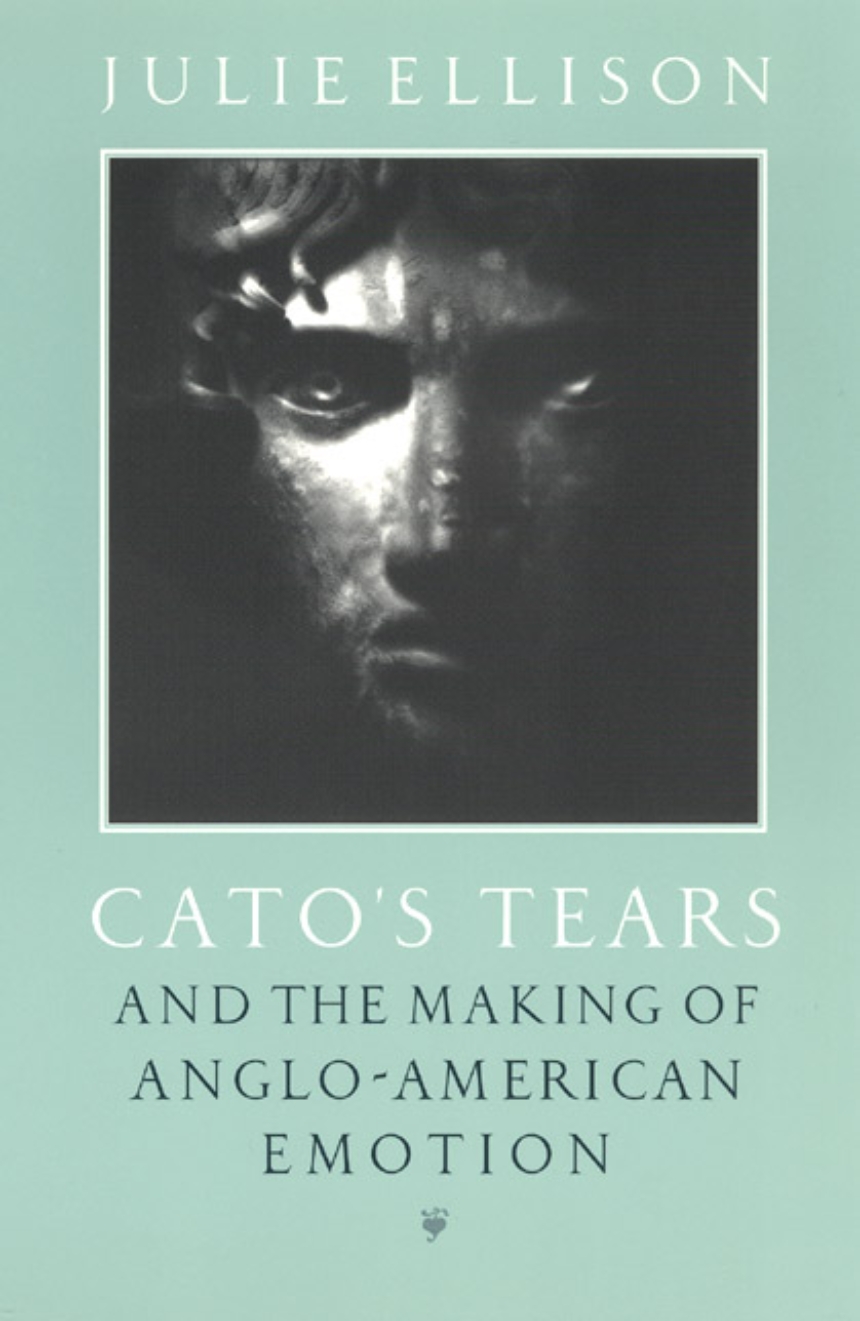Cato’s Tears and the Making of Anglo-American Emotion
How did the public expression of feeling become central to political culture in England and the United States? In this ambitious revisionist account of a much expanded "Age of Sensibility," Julie Ellison traces the evolution of the politics of emotion on both sides of the Atlantic from the late seventeenth to the early nineteenth century.
Early popular dramas of this time, Ellison shows, linked male stoicism with sentimentality through portrayals of stoic figures whose civic sacrifices bring other men to tears. Later works develop a different model of sensibility, drawing their objects of sympathy from other races and classes—Native Americans, African slaves, servants. Only by examining these texts in light of the complex masculine tradition of stoic sentimentality, Ellison argues, can one interpret women’s roles in the culture of sensibility.
In her conclusion, Ellison offers "a short history of liberal guilt," exploring the enduring link between male stoicism and male sensibility in political and cultural life from the late seventeenth century to today.
Early popular dramas of this time, Ellison shows, linked male stoicism with sentimentality through portrayals of stoic figures whose civic sacrifices bring other men to tears. Later works develop a different model of sensibility, drawing their objects of sympathy from other races and classes—Native Americans, African slaves, servants. Only by examining these texts in light of the complex masculine tradition of stoic sentimentality, Ellison argues, can one interpret women’s roles in the culture of sensibility.
In her conclusion, Ellison offers "a short history of liberal guilt," exploring the enduring link between male stoicism and male sensibility in political and cultural life from the late seventeenth century to today.
240 pages | 6 x 9 | © 1999
History: American History, British and Irish History
Literature and Literary Criticism: American and Canadian Literature, British and Irish Literature
Table of Contents
Acknowledgments
Introduction: Someday Bridges May Have Feelings Too
Chapter 1: Conspiracy, Sensibility, and the Stoic
Chapter 2: Cato’s Tears
Chapter 3: The Deathbed of the Just
Chapter 4: Female Authorship, Public Fancy
Chapter 5: Vagrant Races
Chapter 6: Walkers, Stalkers, Captives, Slaves
Conclusion: Liberal Guilt and Libertarian Revival
Notes
Index
Introduction: Someday Bridges May Have Feelings Too
Chapter 1: Conspiracy, Sensibility, and the Stoic
Chapter 2: Cato’s Tears
Chapter 3: The Deathbed of the Just
Chapter 4: Female Authorship, Public Fancy
Chapter 5: Vagrant Races
Chapter 6: Walkers, Stalkers, Captives, Slaves
Conclusion: Liberal Guilt and Libertarian Revival
Notes
Index
